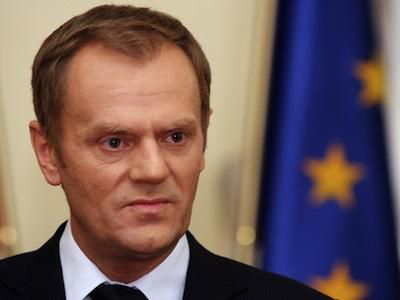The European Union must end the “blame game” on migration and instead focus on working more with foreign countries and further strengthening its border to bring down arrivals, the chairman of the bloc’s leaders said, Reuters reported.
The 28 EU leaders are meeting in the Austrian city of Salzburg to tackle migration, an issue that has badly damaged their unity in recent years.
They will seek more ways of reducing immigration and, right before chairing the talks, European Council President Donald Tusk said progress had been made since the 2015 peak in Mediterranean arrivals. Fewer than 100,000 migrants have reached Europe without necessary documentation this year.
“Instead of taking political advantage of the situation, we should focus on what works ... We can no longer be divided into those who want to solve the problem of illegal migrant flows and those who want to use it for political gain,” Tusk said.
More than a million refugees and migrants arrived from the Middle East and Africa in 2015, stretching public services and leading to a rise in anti-immigrant parties challenging liberal democracies around the EU.
The EU has since struck deals with countries from Turkey to Lebanon to Libya, offering them money and aid in exchange for keeping a tighter lid on migration to Europe. It has also fortified its borders and made it harder to win asylum.
The leaders will discuss a plan to raise the number of guards at the EU’s border agency Frontex to 10,000. It faces some opposition from member states such as Italy that fear an EU body would be able to overrule them on their own borders.
Austrian Chancellor Sebastian Kurz, a backer of the proposal, hoped it could be agreed by the end of the year.
“As far as sovereignty is concerned one can be very much flexible and we can also make changes ... to the Commission proposal,” Kurz said.
“But... in some countries there is also the concern that more Frontex could also lead to more registration and it could therefore become harder to wave migrants through,” he said of practice for which frontline states like Italy and Greece have often been criticised by others in the EU.
While the EU states sitting on the Mediterranean have felt overrun and left by their EU peers to cope on their own, the wealthier countries like Germany and the Netherlands - where many of the arriving people want to go - complain people still reach their soil without being stopped and identified properly on first arriving in the EU.
This is another migration-related issue that has divided the bloc, though the most bruising row has long been around the ex-communist countries on the EU’s eastern flank refusing to host any of the new arrivals to ease the burden on others.






